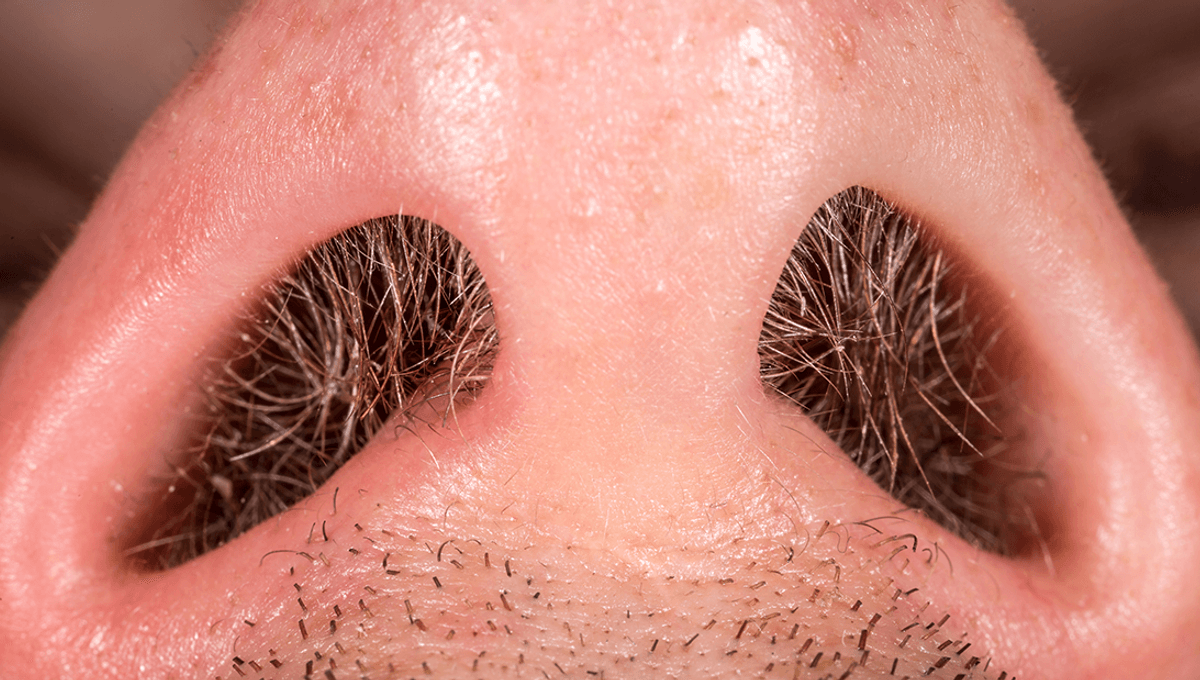
Over our long and meandering evolution, the human species has lost a lot of body hair. For some reason, we have been left with forests of the stuff growing out of our noses and, especially as we age, the ears.
A lot of people are tempted to pluck, wax, or otherwise remove this hair, shunning the much cooler idea of shaping it into a nosetache. But is this a good idea?
There is a hypothesis dating back over a century that nostril hairs, or vibrissae, help protect us from microbes and disease.
“The interior of the great majority of normal nasal cavities is perfectly aseptic [sterile]. On the other hand, the vestibules of the nares [nostrils], the vibrissae lining them, and all crusts formed there are generally swarming with bacteria,” two doctors wrote in The Lancet in 1896. “These two facts seem to demonstrate that the vibrissae act as a filter and that a large number of microbes meet their fate in the moist meshes of the hair which fringes the vestibule.”
While a reasonable idea, it isn’t one which has been tested too rigorously. One study in 2011, which grouped people according to how hairy their nostrils were, found that those with fewer nasal hairs were more likely to develop asthma.
“Our findings suggest that the amount of nasal hair providing a nose filtration function has a protective effect on the risk of developing asthma in [seasonal rhinitis] patients,” the team concluded, adding “to the best of our knowledge, this is the first report on this subject in the literature.”
Other studies have found that trimming nasal hair can improve airflow. While this is a benefit (breathing is, scientists have found, good), improved airflow could feasibly deliver germs further into your nostrils. However, nostril hairs are more likely to capture larger particles than smaller viruses, and it’s still unclear how much of a difference (if any) trimming your nose hair will have on your overall health.
On the other hand, plucking and waxing your nose can cause other problems, sometimes resulting in nasal abscesses which then need to be drained.
“An ingrown hair occurs after a hair is removed when the new hair that regenerates from the follicle can’t break through the skin,” Delaware-based otolaryngologist Dr. Nicole Aaronson explained to Huff Post. “Because waxing pulls out the hair by the roots, the hair must find its way out through the outer layer of the skin again (unlike other hair removal methods where the hair is left at the skin’s surface).”
So plucking and waxing should be avoided if possible, with trimming being a better option. But there are other benefits to having your nose hair intact, other than removing it could (rarely) lead to abscesses. Your nose hairs play a primitive alert system, making you sneeze when some foreign body (be it a fly or pollen) lands on them. And that’s not all.
“Nose hairs trap moisture from exhaled air, preventing the nasal passages from becoming too dry,” Dr. Don J. Beasley, an Idaho-based otolaryngologist added. “This moisture helps to humidify the air we breathe, making it more comfortable for our respiratory system.”
All “explainer” articles are confirmed by fact checkers to be correct at time of publishing. Text, images, and links may be edited, removed, or added to at a later date to keep information current.
Source Link: Why You Might Not Want To Pluck Or Wax Your Nose Hair